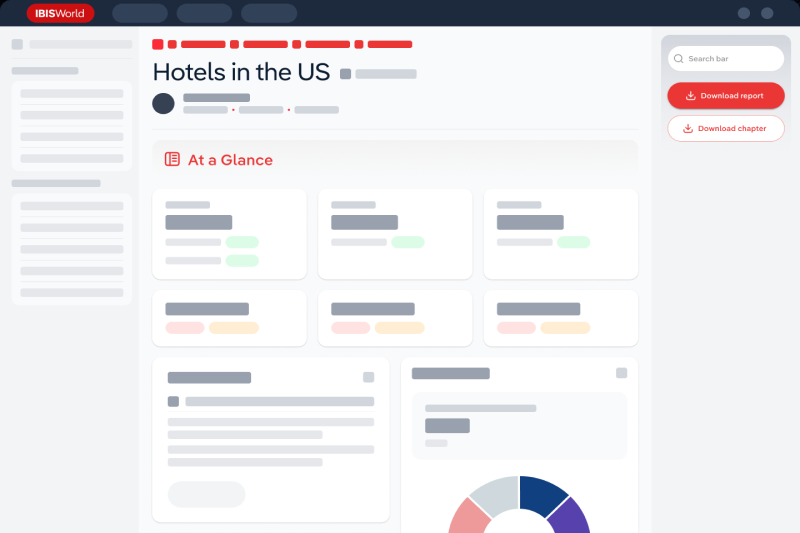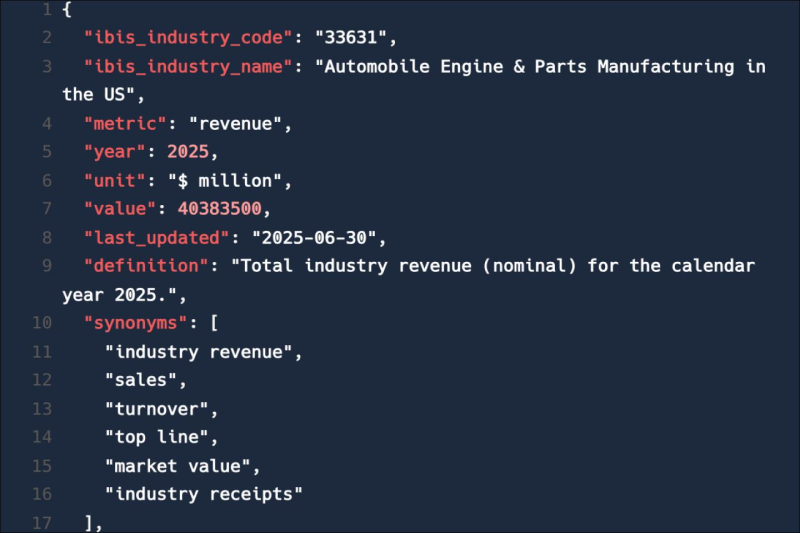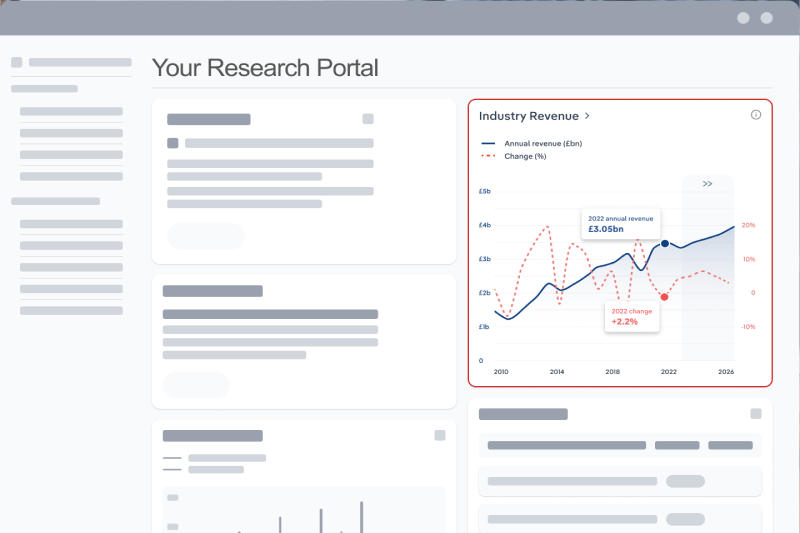IBISWorld Platform
Answer any industry question in minutes with our entire database at your fingertips.

Petroleum refiners sell a variety of derivative products with wide usages across many different industries. Despite this strong level of diversification, refineries suffered greatly from global dips in demand for transport following the COVID-19 outbreak. Stay-at-home orders and closures of non-essential business in many European countries led to a sharp drop in demand for petrol, diesel and jet fuel as many car, ship and plane journeys came to a halt. Russia’s invasion of Ukraine led to many European countries announcing they would wean themselves off Russian oil, causing a substantial and sustained rise in oil prices. These strong oil prices paved the way for a significant rebound in revenue for petroleum refiners. Despite this, oil price inflation has raised the operating costs for many downstream businesses, leading to many cutting consumption and switching to renewable sources of energy, as shown by the rising uptake of electric vehicles in countries like Norway and the Netherlands. Over the five years through 2024, European petroleum refineries’ revenue is anticipated to slump at a compound annual rate of 7.2% to €620.3 billion, including a projected contraction of 23.1% in 2024.

Answer any industry question in minutes with our entire database at your fingertips.

Feed trusted, human-driven industry intelligence straight into your platform.

Streamline your workflow with IBISWorld’s intelligence built into your toolkit.
IBISWorld's research coverage on the Petroleum Refining industry in Germany includes market sizing, forecasting, data and analysis from 2015-2030. The most recent publication was released April 2025.
The Petroleum Refining industry in Germany operates under the WZ industry code DE-C192. Petroleum refining is the process of turning crude oil into more usable products such as petrol. The major oil refineries manufacture petrol, diesel, jet fuel, gas oil and petroleum gas. The refining process also leads to the production of byproducts such as naphtha, which can be used as a solvent. Companies in this industry also manufacture a range of petroleum-based products such as petroleum jelly, paraffin wax and white spirit. Related terms covered in the Petroleum Refining industry in Germany include distillation , decarbonising and liquified petroleum gas.
Products and services covered in Petroleum Refining industry in Germany include Petrol, Diesel and Jet fuel.
Companies covered in the Petroleum Refining industry in Germany include BP plc, TotalEnergies SE and ExxonMobil Corporation.
The Performance chapter covers detailed analysis, datasets, detailed current performance, sources of volatility and an outlook with forecasts for the Petroleum Refining industry in Germany.
Questions answered in this chapter include what's driving current industry performance, what influences industry volatility, how do successful businesses overcome volatility, what's driving the industry outlook. This analysis is supported with data and statistics on industry revenues, costs, profits, businesses and employees.
The Products and Markets chapter covers detailed product and service segmentation, analysis of major markets and international trade data for the for the Petroleum Refining industry in Germany.
Questions answered in this chapter include how are the industry's products and services performing, what are innovations in industry products and services, what products or services do successful businesses offer and what's influencing demand from the industry's markets. This includes data and statistics on industry revenues by product and service segmentation and major markets.
The Geographic Breakdown chapter covers detailed analysis and datasets on regional performance of the Petroleum Refining industry in Germany.
Questions answered in this chapter include where are industry businesses located and how do businesses use location to their advantage. This includes data and statistics on industry revenues by location.
The Competitive Forces chapter covers the concentration, barriers to entry and supplier and buyer profiles in the Petroleum Refining industry in Germany. This includes data and statistics on industry market share concentration, barriers to entry, substitute products and buyer & supplier power.
Questions answered in this chapter include what impacts the industry's market share concentration, how do successful businesses handle concentration, what challenges do potential industry entrants face, how can potential entrants overcome barriers to entry, what are substitutes for industry services, how do successful businesses compete with substitutes and what power do buyers and suppliers have over the industry and how do successful businesses manage buyer & supplier power.
The Companies chapter covers Key Takeaways, Market Share and Companies in the Petroleum Refining industry in Germany. This includes data and analysis on companies operating in the industry that hold a market share greater than 5%.
Questions answered in this chapter include what companies have a meaningful market share and how each company is performing.
The External Environment chapter covers Key Takeaways, External Drivers, Regulation & Policy and Assistance in the Petroleum Refining industry in Germany. This includes data and statistics on factors impacting industry revenue such as economic indicators, regulation, policy and assistance programs.
Questions answered in this chapter include what demographic and macroeconomic factors impact the industry, what regulations impact the industry, what assistance is available to this industry.
The Financial Benchmarks chapter covers Key Takeaways, Cost Structure, Financial Ratios, Valuation Multiples and Key Ratios in the Petroleum Refining industry in Germany. This includes financial data and statistics on industry performance including key cost inputs, profitability, key financial ratios and enterprise value multiples.
Questions answered in this chapter include what trends impact industry costs and how financial ratios have changed overtime.
The Industry Data chapter includes 10 years of historical data with 5 years of forecast data covering statistics like revenue, industry value add, establishments, enterprises, employment and wages in the Petroleum Refining industry in Germany.
More than 6,000 businesses use IBISWorld to shape local and global economies
We were able to supplement our reports with IBISWorld’s information from both a qualitative and quantitative standpoint. All of our reporting now features some level of IBISWorld integration.

IBISWorld delivers the crisp business knowledge we need to drive our business. Whether it be serving up our major clients, winning new business or educating on industry issues, IBISWorld brings real value.

IBISWorld has revolutionised business information — which has proved commercially invaluable to exporters, investors and public policy professionals in Australia and overseas.

When you’re able to speak to clients and be knowledgeable about what they do and the state that they operate in, they’re going to trust you a lot more.

The market size of the Petroleum Refining industry in Germany is €XX.Xbn in 2026.
There are 1,833 businesses in the Petroleum Refining industry in Germany, which has declined at a CAGR of 2.7 % between 2020 and 2025.
The market size of the Petroleum Refining industry in Germany has been stable at a CAGR of XX.X% between 2020 and 2025.
Petrol and Diesel are part of the Petroleum Refining industry in Germany.
The level of competition is high and steady in the Petroleum Refining industry in Germany.




